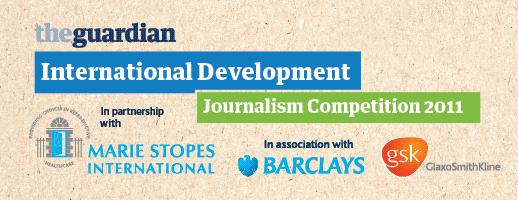Next Journalism:
international literature
Call for Submissions: Issue 14 of A Gathering of Tribes (magazine on multiculturalism)

Scholarships Available: Global Investigative Journalism Conference 2011 in Kyiv, Russia
Apply for The Financial Times - Peter Martin Fellowship in London

Open to African Journalists: €5,000 Lorenzo Natali Journalism Prize

Call for Submissions: Future Lovecraft Anthology
The 2011 King Faisal $200,000 International Prize for Arabic Language and Literature
4th KLIFF 2011 Essay Competition on Islamic Finance (worldwide)
Call for Submissions: Paradigm Shift (journal of essays on peoples of African descent/ black Americans)
NUHA Foundation Essay Competition: The Role of Education in Developing Countries

Call for Candidates: Bayeux-Calvados Awards for War Correspondents
Crossed Genres Publications Seeks Novels with Characters of Color/ Set Outside North America

Deadline Extended: The $1,300 Mahdiya/ Aga Khan Museum International Essay Writing Contest

The Guardian 2011 International Development Journalism Competition on Global Poverty
Call for Submissions: Fish Anthology (Dagan Books)
Call for Book Submissions from Women of Color: Puddletown Publishing
Call for Prose/ Poetry: Inaugural Issue of ShuoMii LGBT Magazine for People of Color

Saraba Literary Magazine: Issue 8 and Call for Submissions (Nigeria/ Africa-wide)
National Geographic Multimedia Grant for Minority-Culture Storytellers

Call for Submissions from Poets of Color: "The Moment of Change" Anthology of Feminist Speculative Poetry (Aqueduct press)
Apply for M Literary Residency 2012 - 2013 in India/ China




